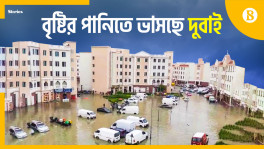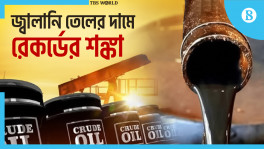Lockdown: To withdraw or not to withdraw?
A scenario-based assessment under different assumptions should be considered based on the socio-economic and cultural attitudes of the country. Without this assessment, early lifting of the partial lockdown could be disastrous

To fight Covid-19, early interventions, strategic planning, programmes and policies, groundwork, and timely decision-making are crucial. But Bangladesh is fighting the pandemic with limited resources, without a clear policy, legislative structures and adequate preparation.
For a developing country, resources need to be assembled appropriately and promptly. With limited screening and testing of Covid-19 in Bangladesh, and presence of only 33 laboratories mostly located in urban areas, it is difficult to predict when transmission of the disease will peak and when the curve will flatten.
Returning to normalcy without knowledge of this trend is difficult. At the moment, a scenario-based assessment under different assumptions should be considered based on the socio-economic and cultural attitudes of the country. Without this assessment, early lifting of the partial lockdown could be disastrous.
From March 26 – the first day of the general holidays – we have collected public response and statements through a questionnaire to understand the evolving scenarios. Considering global lockdown practices, like a 76-day lockdown in Wuhan, and a country context analysis with expert suggestions, we have set three scenarios for impact analysis and possible management strategies.
Scenario 1: Withdraw the existing partial lockdown on May 16
In this scenario, the government lifts the lockdown on May 16. People go back to their regular lives and both formal and informal economic activities resume.
But the number of infections and deaths will most likely increase.
Withdrawing the partial lockdown before 80 days will not bode well for Bangladesh as we do not have sufficient evidence to determine when coronavirus transmission will reach its peak in the country and how long it will take to flatten the curve.
This scenario has already begun playing out on a limited scale: Miscommunication between the Bangladesh Garment Manufacturers and Exporters Association (BGMEA) and government bodies has already resulted in garment workers travelling to Dhaka and Chattogram by foot and other means, twice during the lockdown.
The Federation of Bangladesh Chambers of Commerce and Industries (FBCCI) has also recommended opening many factories, albeit with some guidelines.
The government, meanwhile, decided to allow keeping shops and shopping malls open till 5 pm starting May 10, provided they maintain health guidelines during this partial lockdown.
These moves might worsen the transmission of Covid-19 among the millions of people.
Scenario 2: Continue the existing partial lockdown to 80 days
In this scenario, the government tries to implement a stringent policy of a partial lockdown to 80 days and considers deep analysis of the situation to extend it further.
This scenario outlines identification of Covid-19 hotspots by increasing testing facilities all over the country. The government should ensure proper implementation of the lockdown with limited public movement in the hotspots, resulting in lower community transmission of the virus and a slower death rate.
Coordination among the different stakeholders of the government is necessary, along with increased surveillance and resource allocation to the needy ones, to ensure supply of daily necessities, control price hikes, and to reduce loss of livelihood and unemployment.
The poor and vulnerable communities always lack food and nutrition due to injustice and corruption by local political stakeholders. The vulnerable groups such as disabled and disadvantaged persons, young children and orphans, and elderly citizens, should be taken under protection for their well-being. They should be provided food and nutrition for the time being.
Although the lockdown will pose difficulties for a short time, through proper management and coordination, it could turn out to be the saviour in this crisis.
Scenario 3: Countrywide lockdown without an exit plan
In this scenario, a full lockdown from now onwards without an exit plan initially reduces community transmission and the number of deaths.
But it will have severe impact on the economy.
Loss of livelihood and the unemployment rate will increase in both urban and rural areas due to businesses being shut down. Gender discrimination and gender-based violence will also increase rapidly.
All these will further aggravate the humanitarian needs of the most vulnerable groups in the country in the months to follow. Coordination with the government, law enforcement agencies, and private sector initiatives, with organised relief support for the long-term lockdown scenario, will be required.
Challenges ahead
A strategic plan and policy should be implemented to revive the health, economy and education sectors. Short-term and long-term economic stimulus packages declared by the government should be implemented with a focus on agricultural food security as it can be assumed that a full lockdown might end up in famine and starvation, causing more deaths than the virus. Proper microfinancing with low interest should reach the poor and vulnerable communities.
It will undoubtedly affect the targets of global sustainable development goals (SDGs) of 2030 and all other development targets. The government has already declared the delay of its 8th five-year-plan due to the pandemic.
Along with the pandemic, natural disasters during monsoon season, such as cyclones, riverine floods, flash floods, and landslides, and rising dengue cases, should be considered to prepare for emergencies.
There is no alternative to strengthening healthcare facilities and preparedness for the potential humanitarian crisis if we need to continue the partial lockdown beyond 80 days and simultaneously continue our industrial and economic activities.
It is a good decision taken by the government to recruit more doctors and healthcare staff. There should be a plan to recover the loss in the formal education system. Moreover, humanitarian support should reach the most vulnerable communities, which need to be targeted, outlined and delivered.
Finally, economic implications should be subjected to spatial and geographical considerations, based on the vulnerabilities. Hotspots identified in the delta plan can be considered here. The long-term strategic plan can be integrated into the Bangladesh Delta Plan 2100 and the Perspective Plan, for better strategic management.
In whatever direction the lockdown turns towards, basic support to the masses must be ensured – not so easy without strong strategic planning and multi-sectoral collaboration, including support from the private sector and international bodies.
Mashura Shammi is an associate professor at the Department of Environmental Sciences, Jahangirnagar University. Md Bodrud-Doza works for the Climate Change Programme of BRAC.


 Keep updated, follow The Business Standard's Google news channel
Keep updated, follow The Business Standard's Google news channel
















